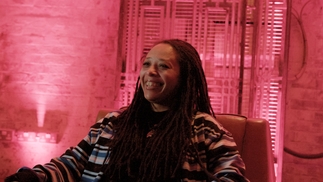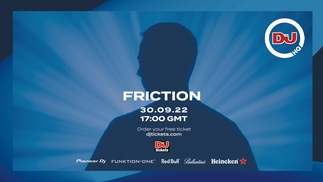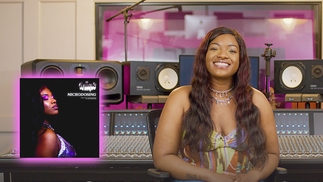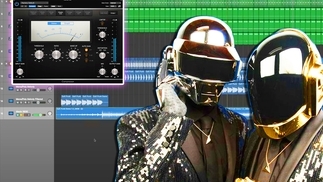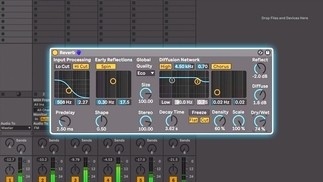THE BIG FREEZE: ICICLE IN THE STUDIO
Drum & bass supremo Icicle is dropping some ice-cold beats on to the streets...
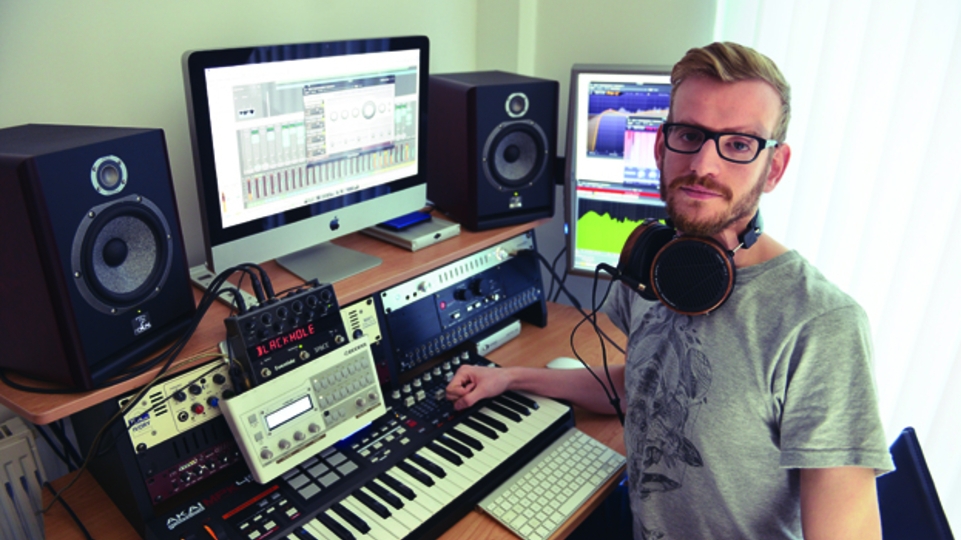
Dutch DJ/producer Jeroen Snik, better known to the world as Icicle, is regarded as one of the most technically advanced and highly-respected producers in his genre. He's remixed the likes of Icona Pop and Noisia, delivering his own uncompromising drum & bass stance on these already popular artists, while his radio show on Rinse FM is highly rated as one of the go-to shows for d&b fans and culture. His new album 'Entropy' on Shogun Audio covers a range of influences, and takes his signature sound to another level. DJ Mag meets the man who, remarkably, is staying rather cool considering all the heat that he is receiving at the moment...
How did it all start for you?
“From a really early age I was experimenting with making music with a computer. I used to play the piano and keyboard and started programming melodies in early MIDI studio-type software. I gradually moved onto Cubase, Fruity Loops and Reason, before ending up on Logic. I was making all sorts of noise until I was about 15, when I first heard drum & bass, and literally two weeks later went to an overwhelming techno party. I started going to my local record shop and spent all my money there for years to come.”
What’s your current studio set-up like?
“I work on a Mac with Logic 9, the new version Logic X has not done it for me, and as a result I’m probably switching to Cubase and PC in the not-too-distant future. I’ve got an Apogee Ensemble soundcard, UAD plug-ins, Focal Solo 6s monitors with the sub and Audeze headphones. I’ve got a bunch of outboard stuff, some compressors, a Virus synth, some modular bits, but that’s all really not that essential to my workflow, it’s more for fun!”
What software are you using?
“Like the rest of the world, a lot of Native Instruments software, in particular FM8, Absynth and Reaktor. I think Fabfilter is an essential bundle, especially for EQ and dynamics, so is the iZotope stuff, and I’m a fan of XLN Addictive Drums.”
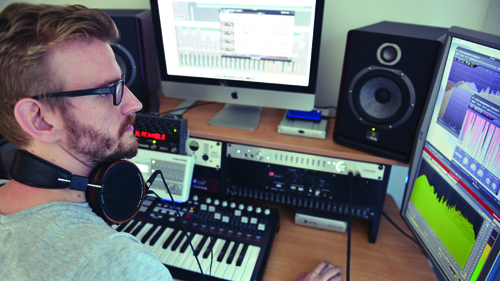
What’s a typical day in the studio like for you?
“That would involve quite a bit of explaining! Starting early in the day always makes me better, even though I’m not exactly a morning person. A lot of the time I’m trying to perfect techniques, develop new drums or learn to build different FM textures, and try out new pieces of software. I usually start with drums so that I have a rhythm to work off; I tend to layer hyper-sampled drum instruments with FM kicks and snares to beef them up. I work almost entirely in the box, there are a lot of soft synths involved, and I tend to bounce things down a lot and manipulate and arrange further with raw audio, as it is a quick and tidy way to build complex tracks. I think fundamentally I drink six cups of coffee!”
What are the bits of kit that you rate highly?
“My monitors and headphones spring to mind; I think you should never underestimate the importance of proper monitoring. Always go for monitoring at the top end of your budget, nothing has a more profound impact on your production quality.”
How did you put the new album 'Entropy' together?
“I think in my head I tried to form an outline of the diversity of music I wanted to be on there. I’ve taken time as well to redefine for myself processes and approaches technically I wanted to include on the record. When a few tracks started to come together, I built on that, looking for the line in the music and the right narrative. I think I’ve been more inspired this time around by modern techniques. There is a lot of development in dynamics and sonics at the moment, and more and more people are really pushing sound production. I think having almost unlimited processing power at a normal budget has made this time the time of unprecedented sound sculpting.”
Sonically the album sounds great. What were some of the techniques you employed to get it sounding so good?
“Some essential techniques, especially in mix-downs, are good control of your final mid/side balance. Taking out lots or all low from your side signal while exaggerating the mids and highs gives you very interesting wide and at the same time still loud mixes. Also, controlling your drum transients well and setting up limiting to allow for the transients to cut through your final mix seems a very important and modern way of working.”
Were you worried about achieving the type of success with the new album that you achieved with ‘Under the Ice’?
“I haven’t tried to think about that that much. I think when you stay focused and make music that excites you, that will be the best you can do and people will pick up on that.”
Did the move from Holland to London in 2008 help you in your productions?
“I moved to the UK mostly because of the DJing. Most of my shows were, and still are in the UK. Flying here so often and in those early days, on very shitty airlines, I decided I might as well move here. That has really paid off with regards to my production, just due to the energy and inspiration London has to offer, not to mention the collaborations.”
You’ve just worked on a project for Native Instruments for their Molekular Modular soft-synth, how did this come about?
“We hit them up about some different ideas we had, and in the course of those talks, they offered us to develop some patches for Molekular, as that was something they were just involved in finalising. It was a really fun thing to work with software that wasn’t released yet, and it turned out to be a very functional piece of software too.”
You’re a bit of a tech junkie. What do you prefer, producing or DJing?
“I really do enjoy all of the above! But I think if I had to choose I’d probably choose a lonely life in the studio! I play on three decks using USB — incorporating more technology into a DJ set always comes across so gimmicky to me. As a reaction to the current DJ climate though, I started full hardware live shows a few years ago, and that is still something we are developing. That to me seems a really honest and exciting way to bring more of my technical abilities to a stage.”
Are you still doing your Rinse FM show?
“I still am, once a month! It’s a really nice way to push yourself to keep up-to-date with new music, new producers, and have a direct and continuous line with your fans.”
Can you share one production tip for making better-sounding music?
“Fab Filter Pro-L limiter on the master channel, set mode to dynamic, attack to 12 ms, release to 30ms, and transients fully linked, trust me!”
